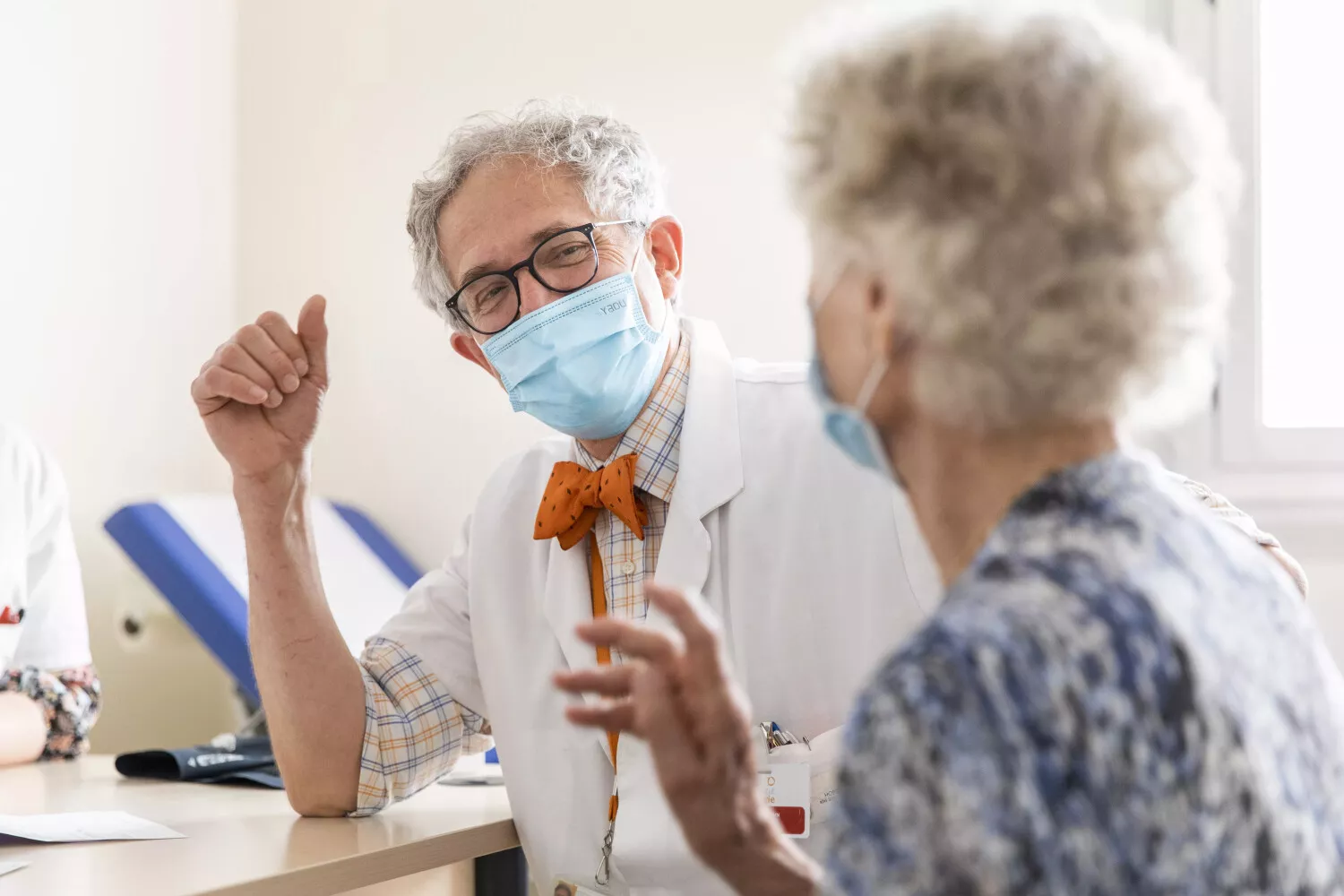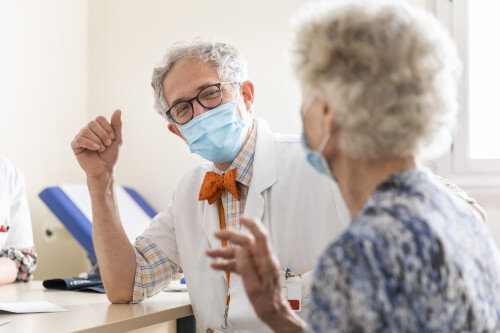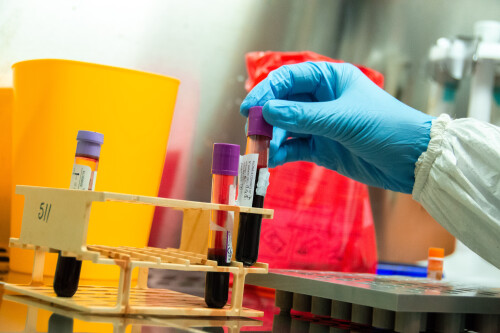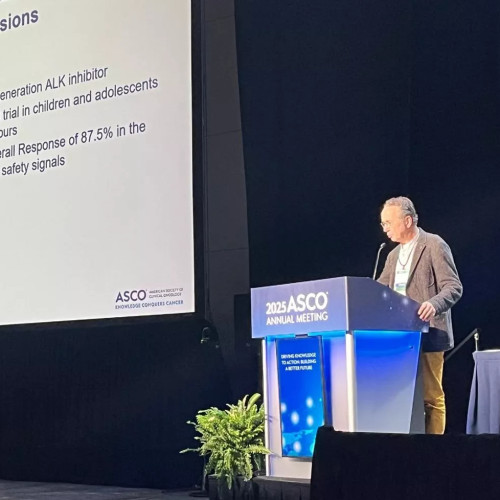On June 7, 2022, during ASCO, Dr. Etienne Brain, medical oncologist at Institut Curie, specialized in breast cancer management and in treating older patients, will present the final results of a groundbreaking and highly anticipated study sponsored by Unicancer: Aster 70s. This phase 3 clinical trial addresses the issues of therapeutic optimization and de-escalation, treatment personalization and access to innovation for the older population.
In addition, Dr. Etienne Brain will be awarded the B.J. Kennedy Award for Scientific Excellence in Geriatric Oncology at ASCO on June 4.
|
• Key points •
|
Nearly half of all cancers occur in people aged 65-70 and over. This will continue to increase in the coming years, raising major challenges in terms of public health. However, the older population is too often excluded from clinical trials, although so crucial to develop and improve appropriate treatments.
”With near 2,000 women with breast cancer aged 70 and older included according broad eligibility criteria, Aster 70s is a remarkable study. Recruitment was conducted on time over 4 years, between 2012 and 2016. In this program, more than half of the patients were randomly assigned to receive chemotherapy or not after surgery. It's the first time that a study of this magnitude has been conducted in a population usually excluded from clinical trials ″, said Dr. Etienne Brain, medical oncologist specialized in breast cancer management and in treating older cancer patients at Institut Curie.
"This groundbreaking study is a perfect illustration of Unicancer's desire to make therapeutic innovation accessible to all. The GERICO group is working tirelessly to conduct large-scale clinical trials among the elderly, a population often left out of clinical trials," added Professor Jean-Yves Blay, President of Unicancer.
Professor Steven Le Gouill, Director of the Institut Curie Hospital Complex, said: "I am very excited about this prestigious recognition from across the Atlantic, which honors Dr. Etienne Brain for his work over the years at Institut Curie. The results he is presenting at ASCO are a turning point for clinical research in oncogeriatrics and improved access to innovation for elderly patients.″
Aster 70s Goals
The benefit of chemotherapy added to hormonal therapy remains controversial in patients with hormone-sensitive breast cancer over the age of 70. Aster 70s is the first multicenter therapeutic trial which assessed this question, based on the analysis of a tumor genomic signature (genomic grade index) used as a biomarker to choose whether to give adjuvant chemotherapy or not in this population. ASTER 70s main objective was to evaluate the benefit of chemotherapy on overall survival in case of tumor aggressiveness (with a high genomic grade index): chemotherapy and hormonal therapy versus hormonal therapy alone.
Thus, 1,969 patients (from 140 French and 12 Belgian centers) with hormone-sensitive (i.e. estrogen receptor-positive ER+) HER2-negative (HER2-) primary breast cancer or local relapse were included in the study, without restrictive eligibility criteria. Patients with a high genomic grade index (i.e. aggressive) tumor - 1,089 patients in the study - were randomized between receiving chemotherapy and hormonal therapy after surgery, or receiving hormonal therapy alone. Those with a low genomic grade index (880) did not receive any chemotherapy. The median follow-up is 5.8 years and the median age is 75 years (70-92).
The main analysis under the intent to treat principle (groups analyzed as assigned to treatment) did not show any significant benefit for chemotherapy on overall survival compared with hormonal therapy alone. This does not mean that some patients might not derive a marginal benefit from chemotherapy, as suggested by secondary analyses per protocol in the context that 10% of patients actually did not receive treatment as assigned, especially for chemotherapy, with a rate of non-adherence very similar to those found in other large randomized studies conducted in the younger population (e.g. RxPONDER, TAILORx or MINDACT).
With the use of a genomic signature (genomic grade index), ASTER 70s shows no significant survival benefit of adding adjuvant chemotherapy to endocrine therapy in older women with luminal breast cancer: this is a first message of caution. If any benefit on survival exists, it is likely marginal, and this is a second message of caution. Improved with the integration of geriatric factors, such signature could help better selecting the right patients for such strategy.
High needs for clinical research in older patients, with focus on quality of life
The large amount of data collected in the Aster 70s program will allow detailed research on tumor or individual factors to decide whether to give or not chemotherapy after surgery. The information collected on patients' health status (including geriatric parameters), quality of life, and also the biobank (tissues, blood tests...), will allow looking for correlations with benefit, time to health status- or quality of life-deterioration, or ageing acceleration induced by treatment.
"Our results are first a cautious message on the use of adjuvant chemotherapy in older patients with luminal breast cancer, in favor of a therapeutic de-escalation, stressing the considerable bias in our attitudes, relying much too often and without any demonstration or good level of evidence to the same standards as in our younger patients. The vast amount of information collected in Aster 70s will enable us to consider the necessary adjustments and adaptations of these treatments, which are often over-prescribed like chemotherapy. More specifically, data related to quality of life, autonomy, independence, occurrence of side effects, acceptability of care, etc., will be crucial to forge new adequate and relevant recommendations, which will certainly include innovation in oncology, will also focus on quality of life and health parameters meaningful to all patients, but even more so to the older ones," concludes Dr. Etienne Brain.
All this work underlines the essential need for specific clinical research in this large segment of our patients’ population, older women with luminal breast cancer, where quality and perception of care are key elements in the conversation with the patient and treatment choice.
| Final results from a phase III randomized clinical trial of adjuvant endocrine therapy ± chemotherapy in women ≥ 70 years old with ER+ HER2- breast cancer and a high genomic grade index: The Unicancer ASTER 70s trial. Session “Breast Cancer — Local / Regional / Adjuvant”. Oral presentation on June 7 at 6:33 pm (CET) |
|
The ASCO B.J. Kennedy Geriatric Oncology Award 2022 awarded to Etienne Brain Named after ASCO Past President B.J. Kennedy, MD, the award recognizes a physician for outstanding contributions to research, diagnosis, and treatment of cancer in older patients, and in recognition of his or her international educational and policy leadership in the field. This year, the award was received by Dr. Etienne Brain on June 4 at ASCO. "I am very proud of this award, which I have received today, as it is the result of many years of work on the treatment of older patients with cancer, particularly those with breast cancer. We must develop further specific clinical research for this older population. This must be done with persistence, relying on the creativity of new generations of oncologists and geriatricians, and encouraging international collaborations to innovate together, for the greater benefit of our older patients who are already our most frequent patients," says Dr. Etienne Brain. Dr. Brain is the former chairman of the Breast Cancer Group of the European Organization for Research and Treatment of Cancer (EORTC). He chairs the DIALOG Intergroup (GERICO/UCOG) dedicated to clinical research for older patients. He is also a past president of the International Society of Geriatric Oncology (SIOG). |
Learn more about the Institut Curie's promising innovations and clinical advances at ASCO 2022 : https://institut-curie.org/page/asco-2022-highly-promising-clinical-innovations-and-breakthroughs-institut-curie
And Dr. Etienne Brain's explanations in video (in French): https://youtu.be/XHPtJ4Ifq4c



